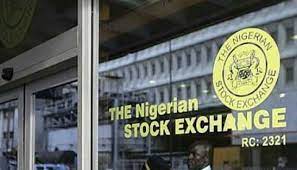The Nigerian stock market has so far defiled economic realities as it continues to remain in the green zone, amidst heavy economic headwinds, Oluwatosin Ogunjuyigbe of Ventures Africa.
He said Nigeria’s stock market (NGX) is having an enticing run.
“Last year, it was one of the world’s best performers, gaining 45.9 per cent. But this year seems even hotter. We’re just over two months into a new year, and it’s already up over 30 per cent. No other stock market in Africa recorded this kind of rally. At the end of February, the NGX’s All-Share Index had gained 33.71 per cent since the year started.
H said, this s supposed to mean that Nigeria’s economy and productivity are booming. But that’s not the case. The stock market is simply defying every macroeconomic factor that ought to pull it down. In the last year, the naira had its worst run since it regained democracy. It hit an all-time low of N1534/$ at the official markets and N1910/$ at the parallel markets. Many companies have been burnt to the bones by this single flame.
According to the Manufacturers Association of Nigeria, about 767 manufacturing companies shut down operations, while 335 experienced distress in 2023. It also said that companies had N350 billion worth of unsold goods last year, and capacity utilisation declined to 56%. Multinational companies like Unilever, GSK, P&G and others have taken their operations out of Nigeria in the last year. It’s arguably the quickest succession of exits by multinationals in decades. Why? High production costs, forex scarcity and low demand. The official inflation rate is 29.9 per,r cent and interest rates recently reached 22.75 per cent.
Honourable Patrick Umoh, a House of Representatives member, said: “Multinational companies are exiting or closing operations in Nigeria due to economic uncertainties, challenging business environments, lack of electricity, constant naira devaluation, high taxes, insecurity, poor infrastructure, port congestion, and stringent government policies.”




